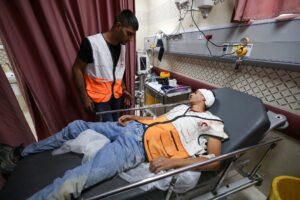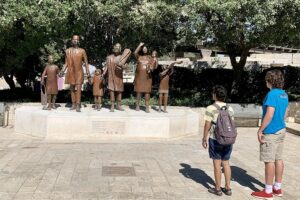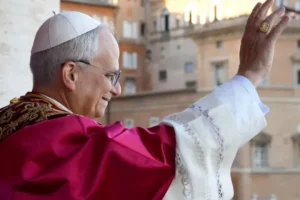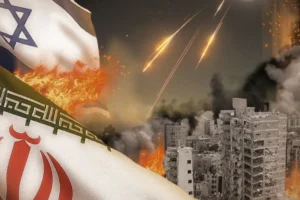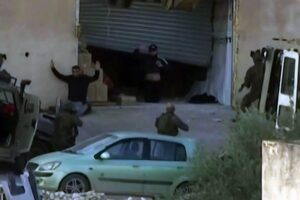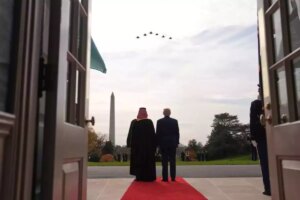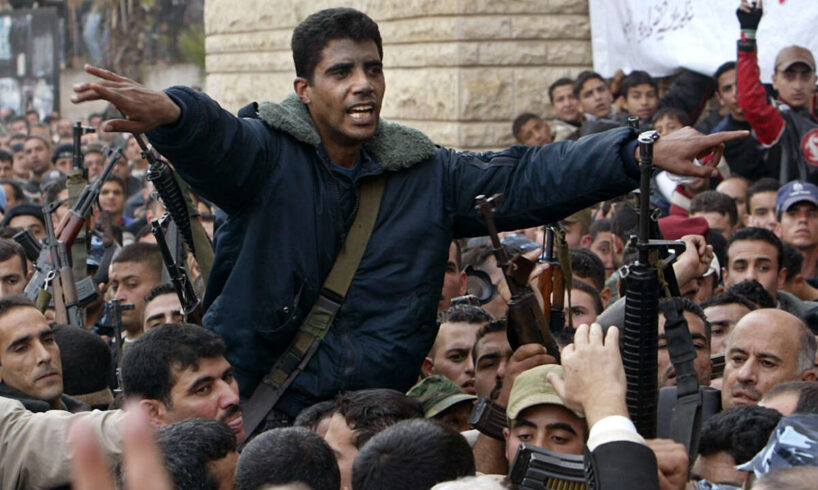
The New York Times published a profile piece about Palestinian terrorist Zakaria Zubeidi, who was released from Israeli custody in February during a hostage deal signed with Hamas. Zubeidi, whose release sparked celebrations among Palestinians who view the convicted commander as a hero of their cause, was described as someone who “inspired Palestinians and horrified Israelis.”
The 49-year-old Zubeidi ranks as the highest-profile Palestinian terrorist freed in the hostage exchange that secured Israeli hostages’ release during Gaza’s temporary ceasefire this year. Throughout the early 2000s, he commanded Al Aqsa Martyrs Brigades operations affiliated with Fatah, orchestrating attacks that killed Israeli civilians while Palestinians celebrated him as a resistance hero.
Though he abandoned terrorism years later to co-establish a theater, Israeli authorities arrested him again in 2019 for violating amnesty terms. During his incarceration, he reinforced his reputation by escaping through a hand-dug tunnel in 2021, though Israeli security forces recaptured him within days.
In his New York Times interview, Zubeidi acknowledged that his career as a terrorist commander and theater director accomplished nothing toward Palestinian statehood goals. None of these approaches succeeded, he admitted, and they may never achieve their intended objectives. “We have to reconsider our tools,” Zubeidi stated during the interview. “We founded a theater, and we tried cultural resistance — what did that do? We tried the rifle, we tried shooting. There’s no solution,” he said.
As a young terrorist, Zubeidi possessed clearer objectives and determination to attack Israel. Following failed peace negotiations in the early 2000s, he joined Jenin’s terror cells, believing violence would achieve Palestinian statehood. As protests evolved into the armed second intifada uprising, Zubeidi joined the Al Aqsa Martyrs Brigades, Fatah’s terror wing in Jenin, rapidly ascending to command positions.
Zakaria Zubeidi, a head of the the al-Aqsa Martyrs’ Brigades, speaks to a bodyguard from behind the wheel during their show of force on December 30, 2004, in Jenin in the West Bank (Photo: David Silverman/Getty Images)
Palestinian terrorists killed approximately 1,000 Israelis during the five-year intifada through suicide bombings and shooting attacks on buses, nightclubs, hotels, and cafes. While Zubeidi denies direct involvement in murders, Israeli authorities accused him of ordering multiple deadly attacks, including a shooting at political party offices that killed several people. Prosecutors charged him with 24 terror-related offenses, primarily involving violence, though no verdict was reached before his release.
“His release is dangerous,” Bella Avraham, whose husband died in that attack, told Israeli media after Zubeidi’s February release. “I expect the state to hunt him down until his last day.”
Over time, Zubeidi adopted different approaches to opposing Israel. When Israeli and Palestinian leaders attempted to restore calm, Israel offered 2007 amnesty to hundreds of terrorists, including Zubeidi, conditional on abandoning weapons.
Zubeidi accepted the deal, telling reporters then that the intifada had failed. He shifted focus to a theater he had recently co-founded with a leftist Israeli actor and Swedish activist. The Freedom Theater in Jenin organized drama workshops for local youth; however, Zubeidi maintained that ending Israeli control remained his ultimate goal. He didn’t intend to replace armed terrorism but rather to provide it with intellectual and cultural support.
“The media said Zakaria moved from armed struggle to cultural struggle,” Zubeidi told the newspaper, referring to himself in third person. “But it’s not about being one thing or another,” he added. “How did I open the theater door? I broke it with my rifle.”
Regarding his prison escape, the Palestinian terrorist told The New York Times it ultimately achieved little and led to harsher conditions for Palestinian prisoners, with him being placed in solitary confinement. He stated that the intifada failed to dislodge Israel, while the Palestinian Authority, the semiautonomous body cooperating with Israel to administer West Bank Palestinian cities, has also failed to achieve statehood through peaceful approaches. Zubeidi blamed Israel for the impasse. “There is no peaceful solution and there is no military solution,” he said. “Why? Because the Israelis don’t want to give us anything.” He added, “It’s impossible to uproot us from here. And we don’t have any tools to uproot them.”
